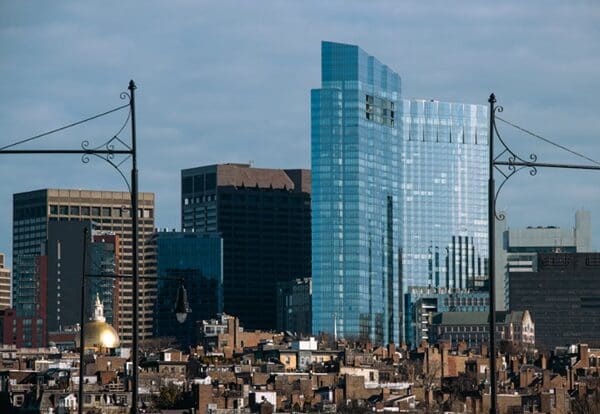
Boston’s real estate market, known for its historic charm and economic growth, offers great investment opportunities.
This article covers key factors driving the market, current trends, challenges, and tips for evaluating investment potential. Whether buying, selling, or investing, understanding Boston’s real estate landscape will help you make informed decisions.
Historical Overview
| Period | Key Events |
| 19th Century | Rapid growth due to industrialization and immigration |
| Great Depression | Significant decline in property values |
| Post-WWII Era | Resurgence due to returning veterans and a growing economy |
| 1970s | Stagnation due to the oil crisis and high inflation |
| 1980s & 1990s | Renewed growth driven by a strong economy and technological innovation |
| 2008 Financial Crisis | A downturn in the market, but Boston recovered faster than many other cities |
| Past Decade | Continued growth with rising property values, attracting investors and developers |
Current State of the Housing Market
Presently, housing in Boston is thriving in the marketplace. Along with limited availability the property prices have gone up. Both buyers and sellers are profiting in great measure.
Here’s a breakdown of some key trends and challenges:
Trends
- Strong seller’s market.
- Rising prices.
- Low inventory.
- Increasing competition among buyers.
Challenges
- Affordability concerns.
- Limited housing options for first-time buyers.
- Potential for rising interest rates.
Key Factors Influencing Property Values
Location
Properties near amenities, transportation, and prestigious spots are more valuable. Those with waterfront views of the Boston Harbor or Charles River often have higher prices due to their attractiveness and limited availability.
Back Bay and Beacon Hill, famous for their historic charm and luxury, have higher prices. Meanwhile, Jamaica Plain and Dorchester, known for lower crime rates and green spaces, are more affordable.
For instance, Back Bay homes often exceed $1.3 million, while in Dorchester, they average around $705,000.
Additionally, proximity to job hubs, like the Financial District and Kendall Square, increases property values.
Property type
- Condos: Generally more affordable and appealing to first-time buyers and investors. Luxury condos in prime locations can be as pricey as single-family homes.
- Single-family homes: Typically more expensive due to ownership benefits, space, and appreciation potential. High demand in Boston suburbs.
- Multi-family: Offers rental income and appreciation potential. It has high value in areas with strong rental demand, like near universities or employment centers.
School Districts
Homes in top school districts are pricier because families value a good education.
Redfin found that properties in these areas can sell for $50 more per square foot than in average districts. Conversely, homes in lower-performing districts tend to be cheaper due to lower demand.
Thus, the quality of education heavily influences real estate prices.
Amenities and Infrastructure
Properties near parks, restaurants, and public transport are pricier due to their added convenience. Well-maintained roads and transit systems also raise property values by improving accessibility.
For instance, Boston’s Big Dig project boosted values around the waterfront areas.
Job Market
Boston’s strong tech, healthcare, and education sectors drive its robust economy. The attractive job market draws people from other regions, increasing housing demand. The steady influx of young professionals and students further tightens the housing market.
Also, higher salaries associated with good jobs allow people to afford more expensive properties, pushing up average property values.
Analyzing Boston’s Investment Potential

Calculating Return on Investment (ROI)
When evaluating a property’s investment potential, consider these three key metrics:
- Rental Yields
The annual rental income is a percentage of the purchase price. Higher yields suggest better cash flow.
Formula: Rental Yield = (Annual Rent / Purchase Price) x 100%.
- Appreciation
The increase in property value over time impacts ROI when you sell. It depends on market trends, property type, location, and local developments.
- Cash Flow
Net income after all expenses (mortgage, taxes, maintenance). Positive cash flow means a profitable investment, accounting for vacancy rates and maintenance costs.
Identify High-Potential Neighborhoods
To identify promising investment neighborhoods in Boston, focus on areas showing signs of modernization or revitalization. Look for improving demographics, rising education levels, and decreasing crime rates.
Key neighborhoods include Dorchester, which has seen significant positive changes, and Allston-Brighton, near major universities.
Also, the waterfront location, affordable housing, and diverse community are the reasons you should move to East Boston and invest. With ongoing development and improved transportation, East Boston’s housing market is set for continued growth.
Ensure the area you want to invest in has good infrastructure, such as reliable public transportation and quality schools. Then, check economic indicators like job growth and rental vacancy rates.
Investment Strategies
Boston’s real estate market is known for its stability and growth, making it a great place to invest.
Here are a few strategies to consider:
Long-Term Buy-and-Hold
Boston’s strong job market, especially in tech and healthcare, means rental demand is high. Investing in properties in good neighborhoods with great schools can provide steady rental income and appreciate over time.
For example, home prices in Boston rose about 2.2% from 2023 to 2024, showing the potential for solid returns (source: Redfin).
Short-Term Rentals
With lots of tourists and students, short-term rentals can be very profitable. Sites like Airbnb make it easy to manage these properties. Just be sure to check local regulations as they can vary by area.
Fix-and-Flip
Buying, renovating, and selling properties can be very rewarding. Boston’s competitive market requires quick decisions and a good handle on renovation costs. It’s risky but can be very profitable if done right.
Real Estate Investment Trusts (REITs)
If you want to invest in Boston real estate without owning property directly, REITs are a good option. These companies invest in and manage income-producing real estate and are traded on the stock market.
Conclusion
As you can see, Boston’s real estate market is strong and growing, with rising property values, low inventory, and high demand. Investors and homebuyers can find opportunities by understanding trends and key factors like location and amenities. Strategic analysis can help navigate this dynamic market.



